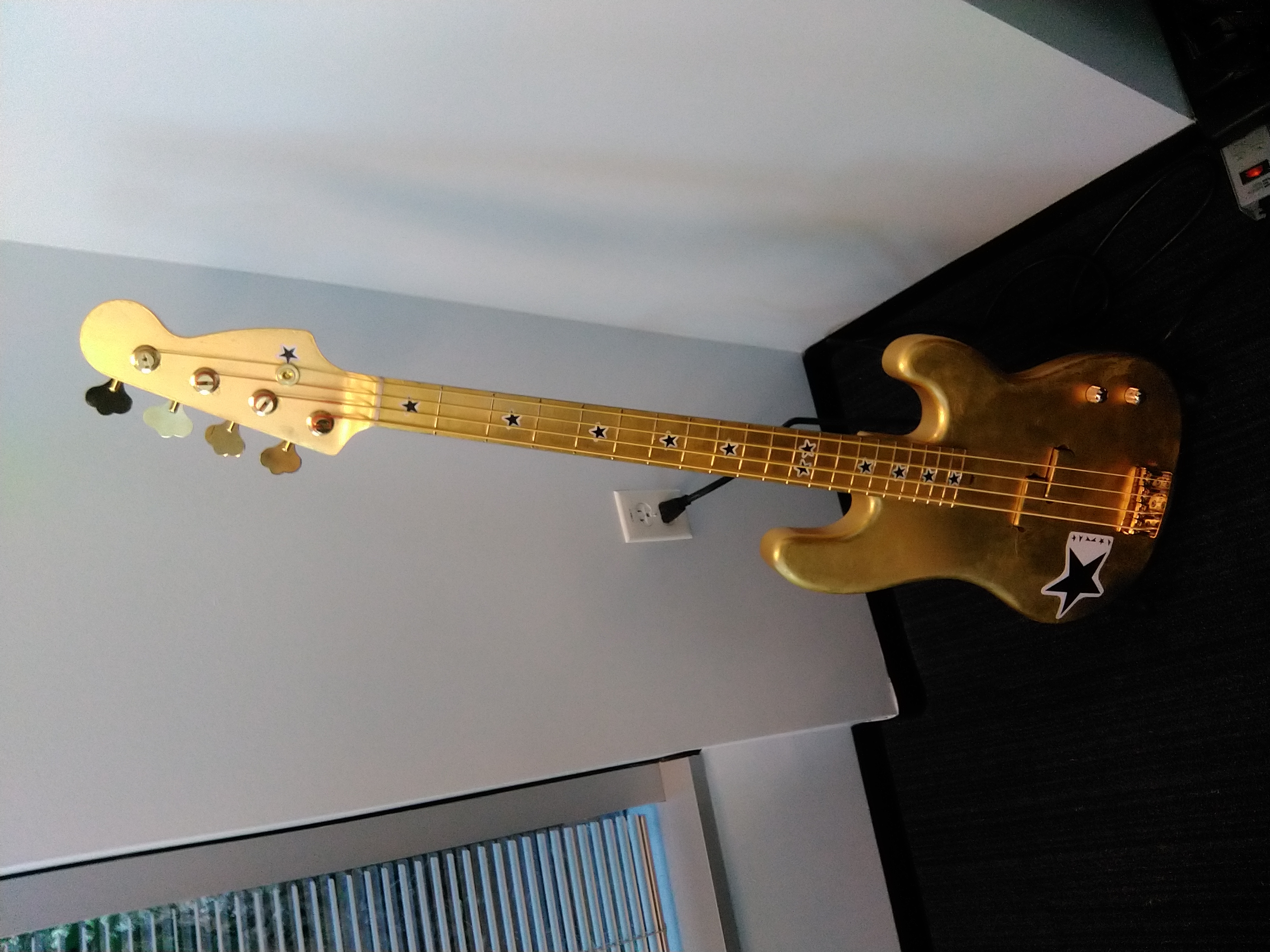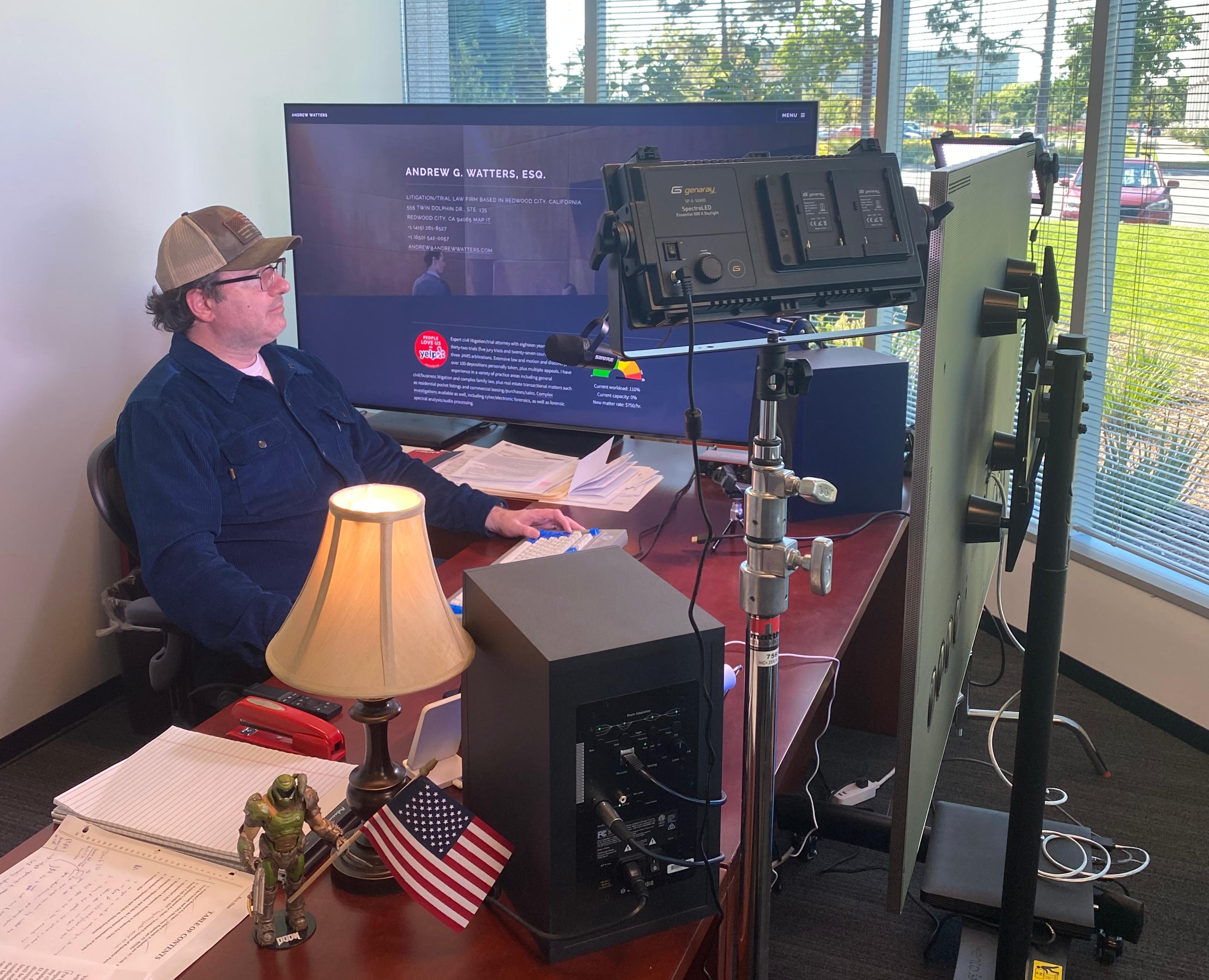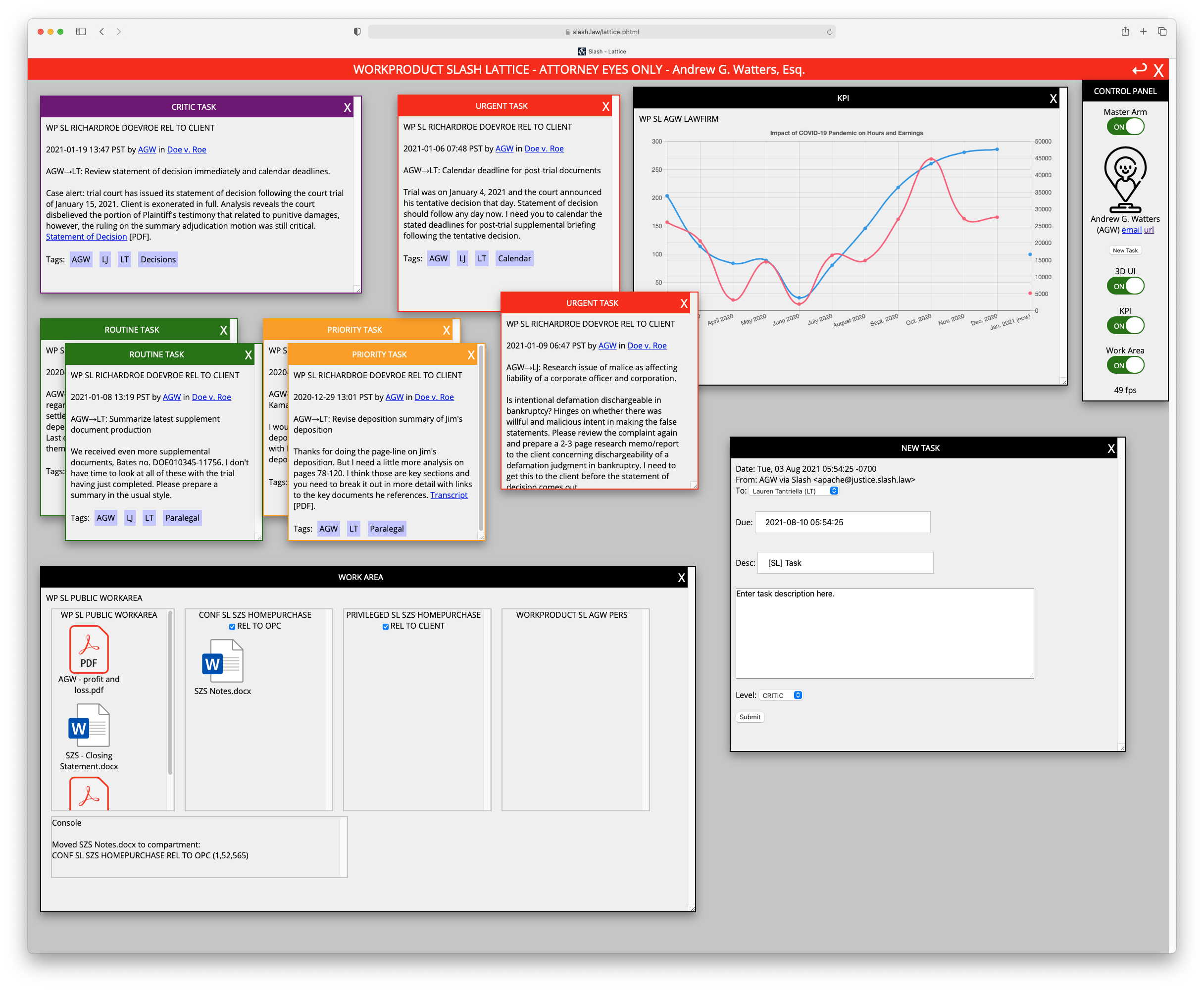Guitars
 Vivienne Wilder with Blackstar 001, March 2025.
Vivienne Wilder with Blackstar 001, March 2025.
 Ian Docherty with the Purple Rain guitar in a Dwayne Gretzky show
Ian Docherty with the Purple Rain guitar in a Dwayne Gretzky show© Robert Georgeff Photography, used with permission.
 Ian Docherty playing Purple Rain with July Talk
Ian Docherty playing Purple Rain with July Talk© Robert Georgeff Photography, used with permission.

Custom tribute guitars dedicated to Prince, David Bowie, and Edward Van Halen, exactly matching the sound and style of these departed artists. $7,000 and up. Options and models:
1. Blackstar
Special edition David Bowie tribute bass in a Precision Bass form factor, featuring an ultra-glam look with double 24K gold gilding (two layers) by a professional gilder, Les Claypool signature EMG pickups with three-way equalizer, gold-plated hardware and strings, and painted-on star-shaped fret markers, with diamond side markers. $10,000.
2. Purple Rain Mark II
Warmoth officially licensed by Fender Stratocaster maple body
Musikraft officially licensed by Fender Stratocaster maple neck
Original Floyd Rose tremolo system (made in Germany)
EMG 85 and SA active pickups (Prince specification)
Schaller tuning machines and knobs
Love Symbol fret marker inlays, officially licensed from the Prince Estate
Gold-look frets
Custom mixed purplish blue metallic paint (body and neck) with Purple Rain logo
$7,000.00 with 50% down, 50% upon readiness for shipment.
3. Little Red Corvette
Warmoth officially licensed by Fender Stratocaster maple body
Musikraft officially licensed by Fender Stratocaster maple neck
Original Floyd Rose tremolo system (made in Germany)
EMG 85 and SA active pickups (Prince specification)
Schaller tuning machines
Love Symbol fret marker inlays, officially licensed from the Prince Estate
Gold-look frets
Custom mixed candy apple red metallic paint (body and neck) with Chevrolet Corvette logo
$7,000.00 with 50% down, 50% upon readiness for shipment.
4. Diamonds and Pearls
Warmoth officially licensed by Fender Stratocaster maple body
Musikraft officially licensed by Fender Stratocaster maple neck
Original Floyd Rose tremolo system (made in Germany)
EMG 85 and SA active pickups (Prince specification)
Schaller tuning machines
Love Symbol fret marker inlays, officially licensed from the Prince Estate; or, actual diamonds as fret markers (add $3,000.00)
Gold-look frets
Custom mixed metallic paint in any color of your choice (body and neck) with logo of your specification
$7,000.00 with 50% down, 50% upon readiness for shipment (cost increases for actual diamond fret markers).
Eddie Van Halen models coming soon.
🇺🇸 All guitars are Made in USA with a domestic parts content of 85% (body, neck, paint, pickups, frets, strings), unless otherwise indicated. 10% parts content made in Germany (tremolo, knobs, and tuners), 5% other (mounting rings and plates, accessories, and certain minor paint components). "Diamonds and Pearls" guitar may optionally include imported diamonds.




